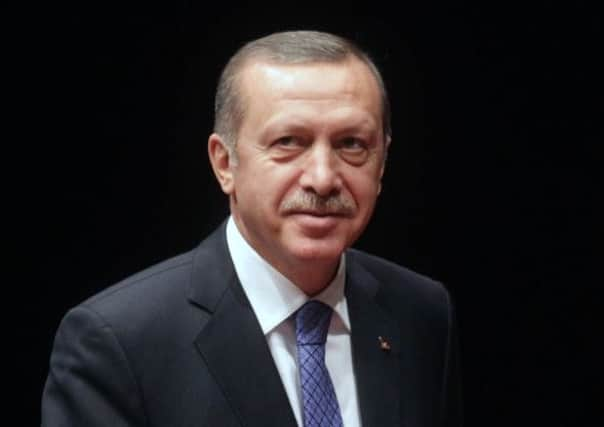Turkey: TV quiz goes off air over ‘graft’ question


In an episode of Kelime Oyunu (Word Game) that aired shortly after the scandal broke this month, a contestant was asked to guess a six-letter slang word for someone who takes bribes – an apparent reference to the graft scandal which led to the arrests of two government ministers’ sons on bribery charges. The contestant blanked as the buzzer sounded. The word “yiyici” – slang for grafter – then flashed on the screen.
The programme was taken off the air, a move which critics see as the latest example of government media suppression.
Advertisement
Hide AdAdvertisement
Hide AdWord Game had been cancelled in June, when its host Ali Ihsan Varol devoted an episode to the summer’s anti-government protests, showing solidarity with demonstrators through questions whose answers included: “tear gas,” “dictator,” and “censorship”.
The show was eventually picked up by another channel, Show TV and officials there yesterday said the show was taken off the air but had no further comment. An aide to Mr Erdogan last night denied the government was behind the show’s cancellation.
Mr Erdogan reshuffled his government last week, replacing ministers implicated in the corruption scandal that has targeted his close allies, including the chief of a state-owned bank.
Claiming that his government was the target of a conspiracy, Mr Erdogan then removed police chiefs and judicial officials believed to be close to an Islamic movement led by US-based cleric Fethullah Gulen, which some commentators say is behind the corruption probe.
Mr Erdogan also tried to change police regulations to prevent further inquests, but that move was blocked by a high court.
The prime minister has taken on domestic and foreign media, accusing them of being part of the conspiracy for reporting the scandal, in a tactic reminiscent of the government’s handling of the summer’s widespread anti-government protests.
He defiantly denounced that the protests were a plot by foreign hands – backed by the international media – to topple his government and destabilise Turkey.
Many Turks were outraged when news channels largely ignored the summer protests in their initial stages, instead airing cookery shows and documentaries including one on penguins.
Advertisement
Hide AdAdvertisement
Hide AdMany people turned to Twitter and Facebook for news of the unrest and penguins became a symbol of the protests.
Since the scandal broke, journalists have been barred from entering police buildings. Media advocacy groups have accused the government of trying to control coverage of the allegations of illicit money transfers to Iran and bribery for construction projects.
The pro-government media has largely down-played the corruption allegations, and in some cases, exercised self-censorship.
One television station down-played its own scoop when a government minister announced during an interview with the channel that he was resigning — and then he urged Mr Erdogan to do the same.
NTV, the 24-hour news channel, initially made no mention of the minister’s call for Mr Erdogan’s resignation.